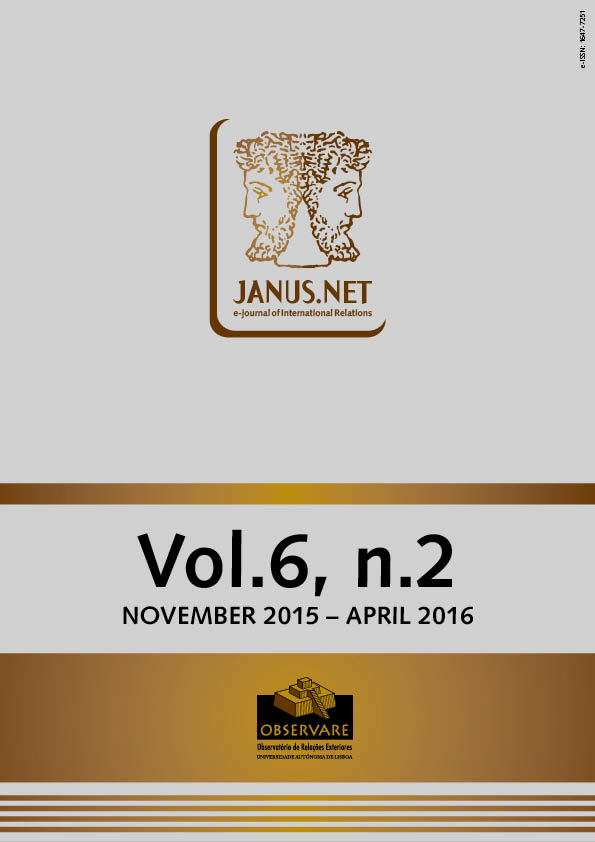This article* analyses the influence that political constraints and technical issues have on the connection between security and development, particularly in discussion on the post-2015 global development agenda. After theoretical grounding, an analysis is done to contextualise the most influential elements. Following some discussion, the practicalities of the post-2015 agenda for development is exposed, contributing to the materialisation of the problems (and opportunities) with the connection between security and development, as well as perspectives on the inclusion of concrete goals that seek this connection in a future global agenda.
*Article based on the Master’s dissertation of the author, ‘The Security-Development Connection in the Post-2015 Development Agenda.’, defended in December 2014 [cf. PEREIRA, Carolina Alves – The Security-Development Connection in the Post-2015 Development Agenda. Lisbon: ISCTE-IUL, 2014. Masters dissertation. Available at www: < http://hdl.handle.net/10071/8827 >.]
O presente artigo procura analisar a influência que constrangimentos de natureza política e questões de ordem técnica exercem sobre a ligação entre segurança e desenvolvimento, em particular no contexto da discussão sobre a nova agenda para o desenvolvimento global pós-2015. Para tal, começa por posicionar-se teoricamente a ligação em análise de maneira a contextualizar os elementos que mais a influenciam e cuja descrição é pormenorizada logo a seguir. Depois, é exposta alguma da discussão prática em torno da elaboração da agenda pós-2015 para o desenvolvimento, o que contribui para materializar as dificuldades (e as oportunidades) em torno da ligação segurança-desenvolvimento, bem como as perspetivas acerca da inclusão de um objetivo concreto visando essa ligação numa agenda global futura.
Pereira, Carolina Alves (2015). ‘The Security-Development Connection in the Post-2015 Development Agenda’ JANUS.NET e-journal of International Relations, Vol. 6, No. 2, November 2015-April 2016. Consulted [online] at the date of last visit, http://hdl.handle.net/11144/2441
Article received on 8 March, 2015 and accepted for publication on 2 October, 2015















